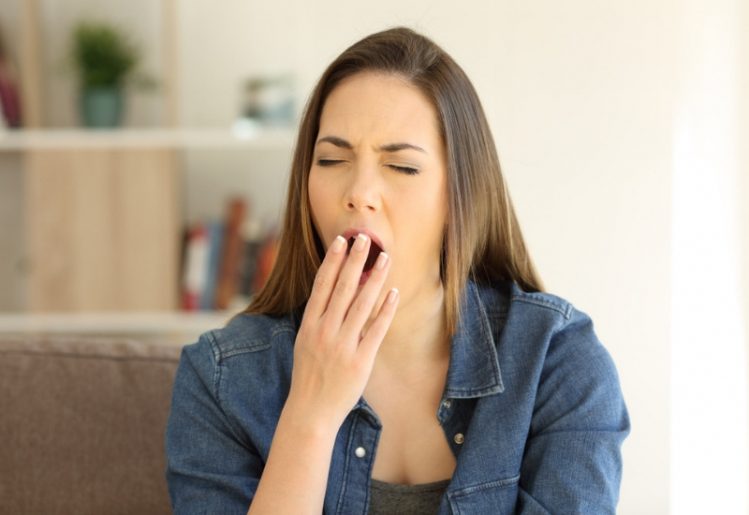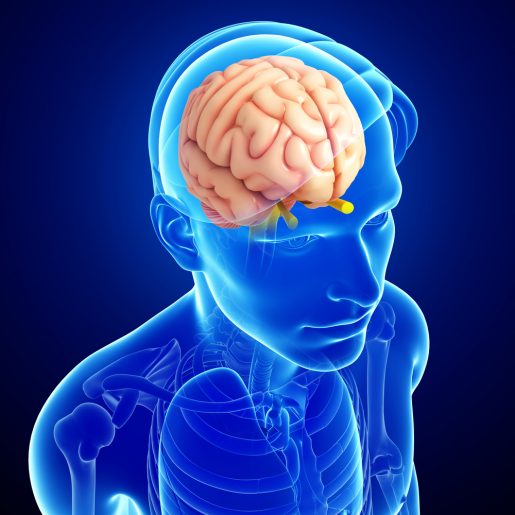Thanksgiving is a time of giving thanks, of family and, most of all, of tradition. Although every American family has a unique way of celebrating this fall festival, most traditions have two things in common: turkey and rest. This has led to a widespread belief that turkey, or more precisely, tryptophan, an amino acid that turkey contains in large proportions, makes you sleepy. Is turkey really what makes you feel so tired on Thanksgiving afternoon? The research on tryptophan and sleep has borne mixed results.
Tryptophan and Turkey: Fact or Myth?

Much of the belief that turkey causes sleep is based on the purported effects of the amino acid tryptophan. Like many essential amino acids, tryptophan is converted to different molecules that are crucial to human health. It is an important building block in several proteins, but it also is important because it is converted to a molecule called 5-HTP. 5-HTP is a precursor to serotonin and melatonin, both of which play an essential role in sleep and mood.
Serotonin is best known as the happiness hormone. It is the molecule that is the target of many popular antidepressants. In addition, it plays an important role in digestion. One of the “side effects” of increased serotonin is more energy. Melatonin, on the other hand, is a hormone associated with sleep. Its effects on the human body are many, as it acts as a potent antioxidant and also triggers DNA repair. However, most people who take melatonin will simply notice that it makes them sleepy.
Tryptophan’s role as a precursor to melatonin is the reason that it is so often associated with sleep. For many people, the tryptophan that they eat is converted to both serotonin and melatonin, giving them that happy and sleepy feeling that so many associate with their post-turkey nap. However, the relationship between turkey and sleep may not be so simple.
Links Between Tryptophan and Sleep
Tryptophan has been linked to sleep in several studies. People who take a tryptophan supplement before bed generally wake up better-rested and more alert. They perform better on tests that require concentration and also display less aggression. This change in behavior can even be seen in lab animals. Because tryptophan has to be converted to melatonin in order to induce sleepiness, this effect tends to be more gentle than that seen by taking a sleeping pill or even from taking melatonin.
The problem with linking turkey and sleep is that turkey is not actually the best place to get tryptophan. In fact, chicken has more of this amino acid. Many foods have ample amounts of tryptophan yet are not associated with sleep. This is due to the fact that tryptophan takes a significant amount of time to be converted to melatonin.
First, tryptophan must be transported across the blood-brain barrier, which can take significant time because it basically has to wait in line with other amino acids. Once there, it is converted to serotonin in several different areas of the brain, and then to melatonin in the pineal gland. Eating turkey is not a fast way to fall asleep. On the contrary, your post-turkey dip in energy is likely due to eating a large amount of carbohydrates.
Could a Tryptophan Supplement Help You Sleep?
 To keep it simple, tryptophan may not provide a quick way to fall asleep, but it indeed can contribute to your sleeping well. Tryptophan supplements have been shown to encourage higher-quality sleep. However, they may not be the answer to insomnia for some people. In elderly people, for example, this amino acid may have the opposite effect. Older people have a less-functional pineal gland due to age-related changes in blood flow to this gland. As a result, excess tryptophan is converted to serotonin rather than to melatonin, leaving elderly people even more energetic.
To keep it simple, tryptophan may not provide a quick way to fall asleep, but it indeed can contribute to your sleeping well. Tryptophan supplements have been shown to encourage higher-quality sleep. However, they may not be the answer to insomnia for some people. In elderly people, for example, this amino acid may have the opposite effect. Older people have a less-functional pineal gland due to age-related changes in blood flow to this gland. As a result, excess tryptophan is converted to serotonin rather than to melatonin, leaving elderly people even more energetic.
People who suffer from insomnia similarly tend to have problems with producing melatonin. As a result, many insomniacs may get the opposite effect as well, getting a boost of energy from the serotonin that is made in lieu of the melatonin they seek.
Getting to Sleep the Natural Way
If you are hoping to sleep better, it may be best to “skip the middle man” and simply take a high-quality melatonin supplement rather than a tryptophan supplement. The effects of melatonin, after all, are what most people seek when they take tryptophan. In addition, behavioral changes such as better sleep hygiene have been found in multiple studies to have the most dramatic effects. Ultimately, there is no guaranteed way to get the sleep you need without the hard work of keeping your circadian rhythm on track. Melatonin can help, but a heaping helping of turkey likely will not.


